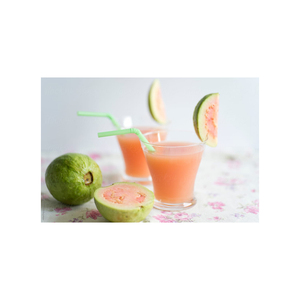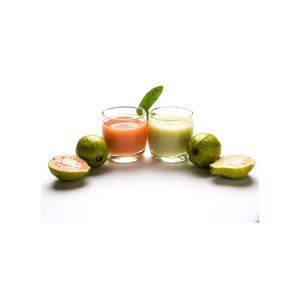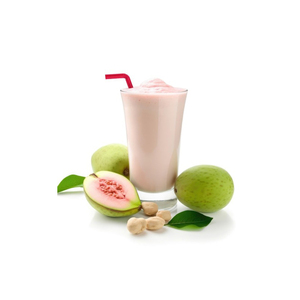(4726 products available)





































































































































































Fresh Lychee Juice
Lychee fruit juice is a delectable tropical beverage extracted from the purplish-red lychee fruit's fleshy pulp. Known for its distinctive sweet and floral taste, fresh lychee juice embodies a vibrant, slightly pink hue. It is more translucent than many other fruit juices due to the fruit's unique texture. This juice, when freshly squeezed, retains the fruit's natural sweetness and has a refreshing, mildly tangy flavor without artificial additives.
Lychee Nectar
Lychee nectar, a thicker juice variant, is typically prepared by blending the fruit with added water or juice for smoother consistency. It often carries additional sweeteners to enhance the already sweet allure of lychee. This nectar's texture can differ from conventional fruit juices, leaning more toward a pulpy, viscous body due to the fruit's unique makeup. Lychee nectar is frequently bottled or canned, rendering it easily accessible in various settings.
Lychee Juice Blend
Lychee juice blends commonly merge lychee with other fruit juices, such as apple, grape, or citrus juices, to balance its excess sweetness. This variant broadens the flavor profile, merging lychee's floral notes with the lighter tastes of the accompanying fruits. Lychee juice blends are widespread in both commercial products and homemade refreshers, offering a pleasant variety that appeals to many people's tastes.
Concentrated Lychee Juice
Lychee's concentrated juice is extracted and evaporated to remove most of the water, creating a potent version that can be reconstituted or used in small quantities. It is commonly featured in food and beverage production, where intense lychee flavor is desired without a bulky presence. The color is more profound than fresh lychee juice, ranging from light pink to pinkish-orange, and the flavor is stronger, sweeter, and more floral, with a thicker consistency.
Lychee Juice Cocktails
Lychee juice is often combined with spirits like vodka, rum, or gin, creating tropical cocktails that balance sweetness and refreshment. Its light, fruity essence and deep pink color make lychee cocktails visually appealing and delicious. Popular in bars and restaurants, lychee cocktails are favored for their floral taste and smooth texture, harmonizing well with various alcoholic and non-alcoholic mix-ins.
Fresh Lychee Fruits
The main ingredient in lychee fruit juice is juicy, fresh lychee fruit. Lychee is a tropical fruit that is sweet and has a floral taste. It is the base of the juice and provides both flavor and natural sweetness. For optimum freshness, quality, and flavor, the fruit is often sourced from countries with an ideal climate to grow lychees, such as Thailand, China, and India.
Water
Water is added to the juice to help extract the flavor of the fruit and create a smooth, drinkable texture. This is crucial, especially when making lychee nectar or blends, as water dilutes the juice and makes it more refreshing and easier to consume in larger quantities.
Sweeteners (Optional)
Many producers include additional sweeteners in the juice to enhance the fruit's natural sweetness, particularly when creating commercially prepared varieties. Additional sweeteners can be refined sugars like cane sugar or high fructose corn syrup or natural sweeteners like honey, agave syrup, or stevia. Additional sweeteners also help balance the juice's flavor profile, making it appealing to those who prefer sweeter drinks.
Citrus Juice or Citric Acid
Citrus juice, like lime or lemon juice, or citric acid is often added to lychee juices and beverages as a preservative and flavor enhancer. It adds a slight acidity that brightens the juice, balancing its sweetness and enhancing its overall flavor profile. Citric acid is commonly used in bottled juices to stall oxidation and prolong shelf life, keeping the juice fresher longer.
Preservatives
Lychee juices meant for prolonged storage and distribution frequently incorporate preservatives like potassium sorbate or sodium benzoate. These substances inhibit microbial growth and oxidation, keeping the juice from spoiling and prolonging its shelf life. While not always found in fresh-pressed juices, preservatives are typical in commercial products that require extended durability due to consumer demand for products that last longer on grocery shelves.
Rich in Vitamins and Minerals
Lychee fruit juice is a tasty drink that offers health benefits. Lychee fruit juice is rich in vitamin C, potassium, and B vitamins. Vitamin C boosts the immune system and acts as an antioxidant. Potassium helps control blood pressure and maintains healthy heart function. B vitamins support energy generation and general well-being.
Hydration and Weight Management
Lychee fruit juice aids hydration because it contains a lot of water, making it refreshing and pleasant. It can be a low-calorie substitute for more unhealthy drinks, helping with weight control. As a result, it supports the body's general hydration and can contribute to weight management because of its low calorie count and delicious flavor, which satiates the urge to drink.
Antioxidant Properties
Antioxidants included in lychee juice, like flavonoids and polyphenols, combat free radicals in the body. Free radicals are dangerous waste products generated during cellular metabolism that can cause damage to cells. The antioxidants in lychee juice are beneficial because they help neutralize these free radicals, lowering oxidative stress in the body, which has been connected to a variety of diseases, including cancer and cardiovascular disease, hence promoting general health and lowering the risk of chronic diseases.
Supports Digestion
The presence of dietary fiber in lychee juice promotes healthy digestion by encouraging regular bowel movements and preventing constipation. This can help to improve the digestive system and improve nutrient absorption. Healthy digestion is crucial for the body's overall functioning, as it ensures that essential nutrients from food are properly absorbed and utilized by the body.
Boosts Immunity
Lychee fruit juice, which is high in vitamin C and antioxidants, strengthens the immune system and wards against infections. Antioxidants can neutralize free radicals and heal damaged cells, while vitamin C promotes the formation of white blood cells and strengthens defenses against pathogens. This combination promotes immunity and may lower the risk of illnesses and infections.
Fresh Consumption
Lychee juice is most often consumed when freshly made alone or with other fruit juices. The sweet and floral taste of the juice makes it a delightful and refreshing drink, especially during hot weather. Whether served at home or offered as a beverage in restaurants and cafes, lychee juice is a popular choice for those looking for a unique and exotic alternative to regular juices.
Smoothies and Shakes
Lychee juice is an outstanding ingredient that adds a tropical taste and sweetness to smoothies and shakes combined with other fruits like bananas, strawberries, or pineapples. It gives a thin and smooth consistency to the blended drink, making it more pleasant, particularly in tropical and fruit-flavored smoothies. Lychee juice is often used in smoothie bowls, where it serves as a base for other toppings.
Desserts and Jellies
Lychee juice is a frequent element in many dessert recipes, including jellies, puddings, and ice creams. It gives a delightful floral taste that improves the texture and makes it more pleasant. Lychee cocktails can also be made with liqueurs or other alcoholic drinks, making an elegant dessert drink perfect for dinner parties or special occasions.
Marinades and Sauces
Lychee juice's sweet and acidic characteristics make it a tasty component in marinades and sauces for meat, fish, or tofu. It tenderizes the protein and gives a nice, fruity flavor that complements grilled or roasted dishes. For example, a lychee juice marinade might be used on chicken or shrimp in Asian-inspired dishes for a balance of sweet and savory flavors.
Cocktails and Mocktails
Lychee juice is a famous cocktail ingredient, giving mixed drinks a light, fruity taste. Popular cocktails like the lychee martini blend lychee juice with vodka and other components for a delicious drink. Lychee juice is also used in mocktails, providing a tasty non-alcoholic cocktail choice for events. It can be mixed with soda water, tonic, or other juices to create a refreshing, visually appealing drink without alcohol.
Ensuring the quality and safety of lychee juice necessitates adherence to several standards and regulations, given the juice's delicate nature and widespread appeal worldwide.
ISO Standards
International Organization for Standardization (ISO) standards are frequently applied to juice manufacturers to guarantee consistent quality management systems. Quality control procedures and adherence to established operating procedures are included in these standards to assure the juice's safety and quality. For example, several lychee juice businesses are ISO 22000 certified, demonstrating their capacity to manage food safety in the supply chain while concentrating on customer satisfaction and regulatory compliance.
HACCP (Hazard Analysis and Critical Control Points)
Most countries require or recommend that juice processors implement HAACP plans outlining the measures they will take to identify and control possible food safety dangers. When manufacturing and managing lychee juice, which may be vulnerable to microbiological contamination, chemical residues, or physical impurities, critical processes (like washing, peeling, and extracting) must be carefully monitored. By doing this, businesses may guarantee that their items satisfy safety standards and reduce possible hazards before they reach consumers.
FDA Regulations
The US Food and Drug Administration (FDA) is in charge of overseeing the labeling and safety of juices that are marketed in the US. The FDA establishes standards for juices like lychee juice regarding pulp and dissolved solids content, acidity, and permissible preservatives. According to the law, all components must be clearly disclosed on the label, and relevant nutritional information must be provided. In order to avoid potential health hazards from consumption, the FDA closely monitors the juice sector's sanitation procedures and adherance to food safety standards.
EU Regulations
Similarly, the European Union has strict regulations on lychee juice quality and safety, mandating that juices adhere to specific purity directives regarding fruit content and sugar levels. The use of pesticides, additives, and environmental contaminants in the food supply is also governed by rules that require rigorous testing and monitoring. Before entering the European market, labels must be correct and wholesome and include information on allergens, additives, and artificial sweeteners.
Local Health Authorities
Lychee juice producers are subject to local health authority rules in addition to these international and regional frameworks. They audit production facilities, enforce rules for employee hygiene, and supervise procedures for purchasing and processing food products. To protect quality, health, and safety, these agencies concentrate on sanitation, storage, and transportation for regional and local manufacturers.
A1: Lychee juice is very sweet and has a floral taste, unlike most other fruit drinks. Many people compare the flavor to a subtle cross between grapes and rose petals because of its unique flowery and fruity flavor.
A2: Lychee juice is naturally free of gluten, dairy, and nuts, making it suitable for people with these dietary restrictions. However, checking for added ingredients or sweeteners that may contain allergens is essential when purchasing commercial lychee juice products.
A3: Yes, Lychee fruit juice is an excellent choice for supporting hydration due to its high water content and refreshing flavor. It can be a tasty alternative to water or other non-refrigerated beverages, especially in hot weather.
A4: If exposed to air, fresh lychee juice should be refrigerated and consumed within 3 days because it has a limited shelf life. Commercially produced bottled lychee juice may last longer and can be stored at room temperature until opened, depending on preservatives.
A5: Certain lychee juices may have preservatives, artificial sweeteners, or allergens added to them. Therefore, it is always advisable to carefully read the label before consuming any packaged juice products, especially for people with allergies or intolerances.